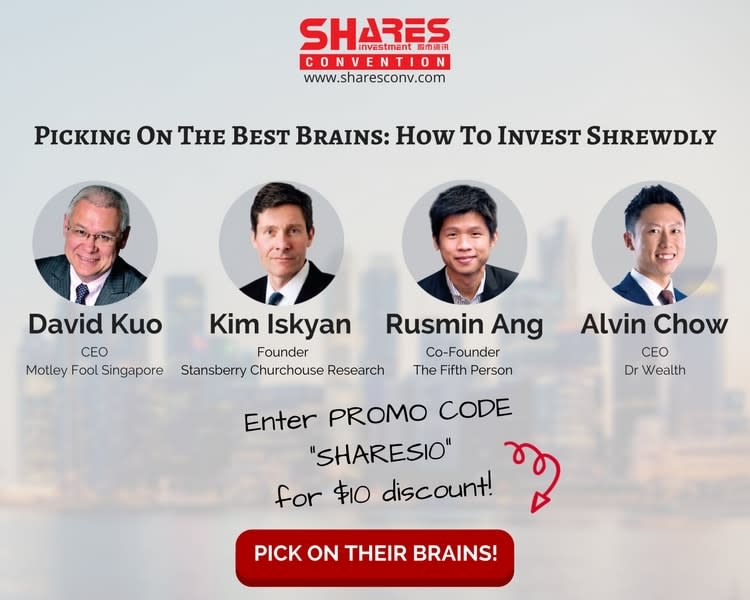Why You Might Be Better Than Hedge Fund Managers
You’ve probably heard of how much hedge fund managers from the Wall Street earn. Not to mention their annual bonuses. You’ve probably also heard that a simple index ETF like the S&P500 or our very own Straits Times Index (STI) ETF outperform these hedge funds. Not all the time, of course. But often enough.
So why are these hedge fund managers still getting paid so much? Actually, the question we should be asking is: How? Where is the money used to pay these hedge fund managers coming from? Well, the investors who put their money with the hedge funds in the first place!
It’s no wonder lesser money is flowing into hedge funds. Why? Because retail investors are realising that they can actually do better than hedge funds. Here are some reasons why you might actually be better than the good old hedge fund managers too.
Their fees corrode your returns regardless of performance
Hedge fund managers are paid to manage funds. Nothing out of the norm. But how about when the hedge funds lose money? They still get paid, with bonuses cut, of course. But that’s bad news for investors of hedge funds. The managers still get paid fat pay cheques despite losing investors’ money.
Most hedge funds go by a “1 and 20” or even “2 and 20” rule. The rule basically means 1.0% (or 2.0) of managed assets and 20% of profits are paid to hedge fund managers. This is regardless the portfolio returns. SumZero’s latest 2017 report shows the median salary of hedge fund managers. It’s scary.
1.0% or even 2.0% of any billion-dollar hedge fund would amount to tens of millions of dollars. Let’s not forget the multi-billion dollar funds and even those managing hundreds of billions. Let’s put things in perspective. Say the fund were to return 7.0% in a given year. 1.0% or 2.0% would wipe out more than 10% or 20% of your returns! Fortunately, there is a cheaper alternative for retail investors: index ETFs.
Index ETFs or low-cost mutual funds are more cost effective
Hedge fund managers cost a lot to hire. They have to outperform the market by certain margins to ensure investor returns are higher than that of a simple index ETF. Thus, after reducing hedge fund management fees, index ETFs tend to have better returns. An index ETF is basically a portfolio that tracks a benchmark index. Examples include the US S&P500, Hong Kong Hang Seng Index and Singapore’s STI.
Well, you probably won’t take my word for it. Take a look at this 2016 report from the S&P Dow Jones Indices. Almost eight out of 10 (79%) US active funds underperformed the S&P 500 year on year in 2016. Over the decade, however, almost all (97%) underperformed.
What does this mean for the investors? Buying the S&P500 ETF would actually make them smarter than most of the actively managed funds. Furthermore, index ETFs typically charge a lot less than hedge funds. That is the whole point of buying them in the first place anyway.
Even Warren Buffett thinks so
Even one of the most prominent investors over the past half-a-century, Warren Buffett, would rather bet on a “very low-cost S&P500 index fund” than hedge funds. In fact, he did. Almost a decade ago, to be exact. And he’s winning by a huge margin. Take a look at the table below taken from his 2016 letter to his shareholders.
Here’s another fun fact about Buffett. Because of his age, he actually decided to employ a trustee to deploy the cash he’s leaving for his wife when he passes on. His exact words were:
“My advice to the trustee couldn’t be more simple: Put 10% of the cash in short-term government bonds and 90% in a very low-cost S&P 500 index fund. (I suggest Vanguard’s.) I believe the trust’s long-term results from this policy will be superior to those attained by most investors — whether pension funds, institutions or individuals — who employ high-fee managers.”
For higher returns…
Of course, investing in merely a low-cost index ETF might not offer the best returns. It is a good and boring strategy but not the best. One good strategy is to allocate a certain portion of your portfolio to a low-cost index ETF. Leave it there over the long-term.
The remaining portion of your portfolio could be allocated to dividend stocks. Most of our regular contributors including The Fifth Person, Dr Chan, AK and others are huge advocates of dividend stocks. What could be better than receiving regular cheques just for being a loyal investor of great companies?
Speaking of which, you might be interested in joining us at our investment conference where investment experts would be sharing their insights on investments! Speakers include David Kuo from Motley Fool Singapore, Rusmin Ang from The Fifth Person, Kim Iskyan from Stansberry Churchouse Research and research analysts from CIMB Securities and City Index.
All speakers will be sharing valuable investment tips and insights they’ve accumulated over their years in the industry and stock market. For more information on the event, please click on the button below.
Upcoming Event
P.S. Don’t forget to enter promo code “SHARES10” for a $10 discount!





